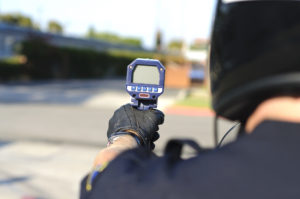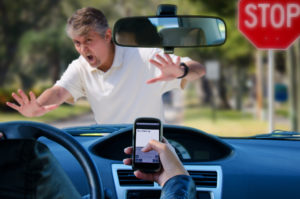Speeding Ticket Traffic School
Frequently Asked Questions
California speeding tickets are the most common of all traffic tickets in the state. But the sheer number of possible violations in the California Vehicle Code enables police officers to write more than four million tickets every year. That’s more than any other state, even New York.
What is Defined as a Speeding Ticket in California?
California’s traffic laws are all part of the California Vehicle Code (CVC). The CVC contains many kinds of laws and regulations spanning well over 42,000 sections and 18 divisions. Printing out all of those pages would take hours and reading them would take even longer. But that’s what lawyers are for!
The California Vehicle Code has five main sections that deal with speeding tickets: CVC subsection 22349a, subsection 22349b, §22405, §22406, and §22407. Each of these sections covers different specific rules, but they all deal with speeding in one way, shape, or form.
To make things simple, there are two kinds of speeding laws in California: basic speed law and official speeding. Basic speed law states that you must drive safely and responsibly given the current circumstances, regardless of the posted limit. Normal speeding just means driving over the posted limit.
Subsections 22349a and 22349b set a hard speed limit for highways and two-lane roads (65 and 55 miles per hour respectively). These limits make it illegal to travel anywhere in the state at a speed above that limit.
How Long Does a Speeding Ticket Stay On Your Record?
All California speeding tickets stay on your record for a maximum of 39 months.That’s three years and three months, or around 400 days.
Most California speeding tickets are traffic infractions. Infractions are the least severe violations of the California Vehicle Code. Only a few speeding tickets will ever go to the next level up—misdemeanors. For example, speeding by more than 30 miles per hour in California is a misdemeanor.
If you get a misdemeanor speeding ticket, you could end up with a criminal record. If you’re above the age of 18, that criminal record just might last a lifetime. However, most people will only be able to see the last seven years of your record. Although the conviction will never go away, it will only be visible for those seven years.
If, for any reason, you fail to appear for a speeding ticket hearing, you could be charged with failure to appear and your speeding ticket could stay on your record for another five years.
However, if you get your ticket dismissed in a court of law, you won’t have to worry about this at all. In California, nothing can go on your criminal record unless the charges resulted in conviction.
Is There a Way to Avoid Points on My License?
One way to avoid points on your license in California is to request traffic school during trial. If you think you’re going to lose and if this is your first time getting a speeding ticket, you may be able to convince the judge to defer your case until after you complete traffic school. At which time, the charges may be dropped and the point will not appear on your license.

Speeding Tickets
A speeding ticket on your record is a big red flag to insurance agencies. Going to traffic school keeps it from your insurance company.
Stop Sign Tickets
Stop Sign Tickets
When police officers are behind on giving tickets this is a go -to for sure way to catch up. Mask your ticket with our online traffic school.
Cellphone Tickets
Manipulating your phone in any way these days ends up with a cellphone ticket. Keep your insurance rates low by taking traffic school.



